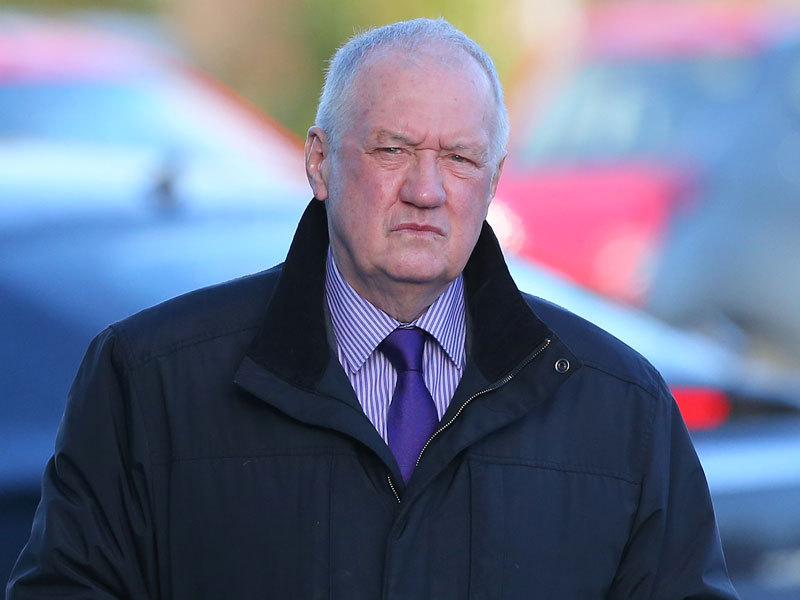Brian Glanville: Horrors of Hillsborough Fail To Go Away
There alas seems no end to the repercussions of the horrific Hillsborough disaster of April 15, 1989. Now the hapless senior policeman David Duckenfield, so ineptly in charge, is due to go into the dock.
His was the fatal decision to open a gate which allowed Liverpool supporters to swarm in and precipitate the horrors that ensued.
Yet as one has so often stressed in the past, there are reasons to see him as a fall guy. Never had he been given so demanding a post before. The officer who had been in charge the previous year, when exactly the same two teams Liverpool and Nottingham Forest had been involved, had managed to officiate with no adverse consequences. The word was that he was removed from the task as a result of what was loosely catagorised as horseplay among junior officers.
All too clearly this was an irresponsible decision and those who made it surely deserved to be held to account. Not to mention the scandal of senior Sheffield police officers forcing coppers who had been on the ground to amend and falsify their notebooks; a prosecution over this of a senior officer is pending.
Yet alarming questions remain. Above all, why Hillsborough was used for the semi-final at all. I have spoken to fans who stood on or near those fateful terraces who have insisted that the dangers had been all too potentially plain.
The decision to use the stadium for all that, the Football Association continuing to choose Hillsborough for the semi-finals, should surely have put those responsible at the FA – whoever they are – under possible prosecution. Poor inadequate David Duckenfield remains the villain of the piece and after all these long years must wonder what will happen to him.
But he was hardly the sole offender.
*****************
The wastage of young English talent, excluded by their clubs in favour of foreign players, is an increasing and worrying problem. When England B, as one might call them, limped through in Leicester against the Swiss, the greatly gifted Ruben Loftus-Cheek, so promising when used in the last World Cup, looked sadly off the pace.
I am not the only writer to have noted that Loftus-Cheek has been given such scant opportunity in the Chelsea first team after returning from an impressive loan period at Crystal Palace. Public statements by the Chelsea manager hold out scant hope of an early promotion to regular first-team football, and there are still years on the contract; he has been with Chelsea since boyhood.
Worse still and preoccupying to the FA has been the case of Dominic Solanke at Liverpool. Ironic that he should have preferred to go there rather than try his luck at Chelsea, though goodness knows he would hardly have been guaranteed a first-team place there any more than Loftus-Cheek.
Now aged 21, Solanke was player of the tournament when England won the world under-20 title in 2017 and has gone on to score crucial goals for England under-21. Aidy Boothroyd the under-21s manager admires him but is properly perturbed about his present situation. “I’m really pleased with Dom,” he says, “but I’m also a little bit worried about him because he is not getting the minutes and not getting the games… Not as many players as there should be are getting the opportunity in the Premier League.”
Which brings us to the question of the precociously gifted Phil Foden of Manchester City. But not, alas, of their regular first team. City’s own manager, Pep Guardiola, has lauded Foden, saying that he thinks he is ready for England. “He’s ready for City, Phil is special… He will have a lot of minutes this season. After that Gareth [Southgate] has his own decision.”
But Southgate has already said that before he chooses Foden for the national side he wants him to have more first team club experience. Ominously other voices at City say that “he is not expected to become a City regular for a few years”. And what good does that do anybody, above all Foden?
***********
Now let us be sartorial, in plainer language, let us discuss the wretched habits of teams in all divisions changing their colours when there is no remote colour clash with the home side.
Last Saturday we saw a blatant example of it when Manchester United played at Watford, Heaven help us, not in red but in WHITE! Could red by the wildest stretch of the imagination have clashed with Watford’s yellow? Money no doubt is at the bottom of it as so often, but do the Premiership clubs in particular need it?
When I lived in Italy in the 1950s, the pleasing habit was that when colours clashed it was the home team which has to change, clearly assuming that the home crowd would like to see the opposition in their correct colours.
Don’t forget to follow World Soccer on Facebook and Twitter.






